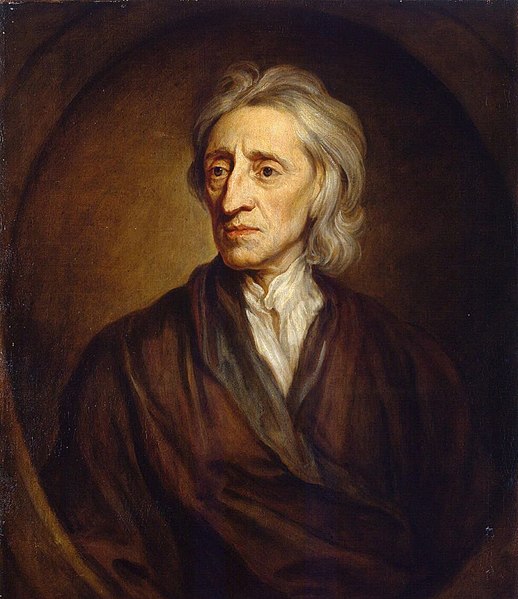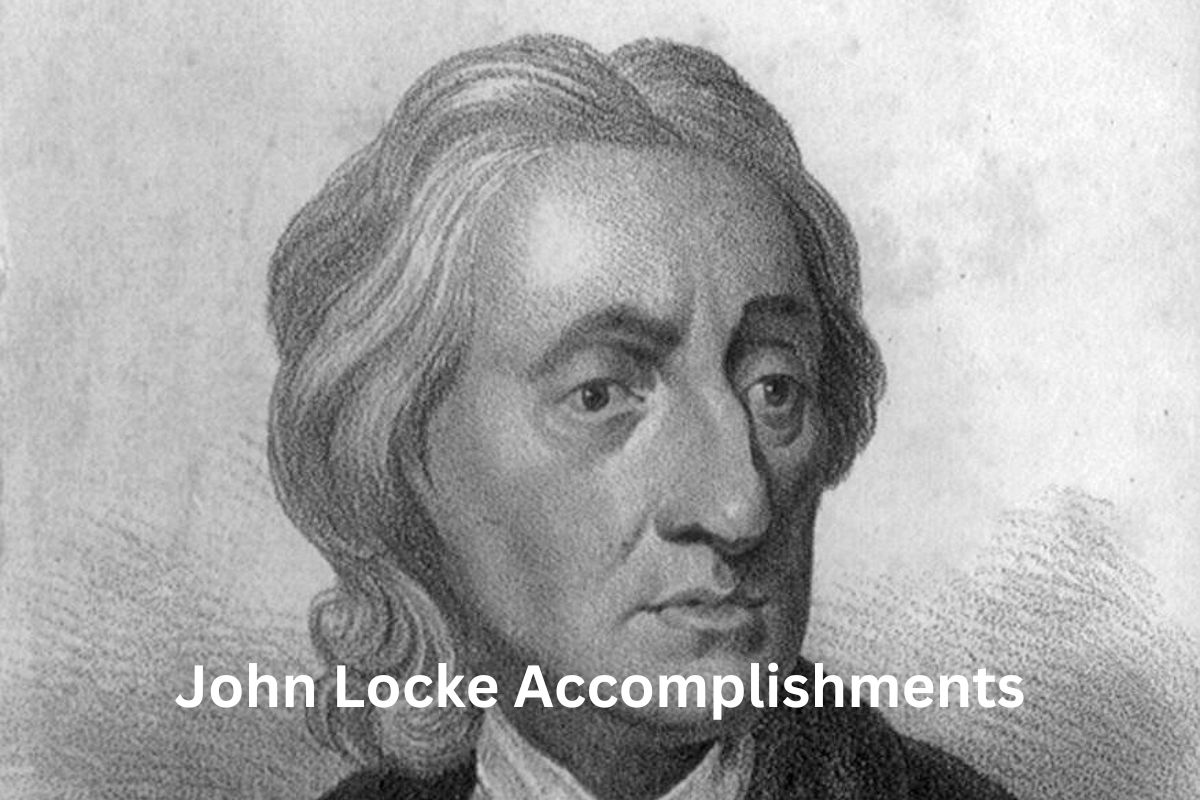John Locke (1632-1704) was a prominent English philosopher and political theorist whose ideas profoundly influenced various fields, including philosophy, politics, economics, and education.
He is known for his significant contributions to concepts such as the “blank slate” theory (tabula rasa), empiricism, natural rights, and the social contract.
Locke’s ideas on limited government, religious tolerance, and individual rights have had a lasting impact on the development of democratic principles and constitutional governance.
Moreover, his works played a crucial role in shaping the Enlightenment movement and influencing political and social reform across the world. Locke’s intellectual legacy continues to be influential in contemporary discussions surrounding individual freedom, the role of government, and the pursuit of knowledge.
Accomplishments of John Locke
1. Tabula Rasa (Blank Slate) concept
John Locke introduced the concept of tabula rasa, which translates to “blank slate.” He argued that the mind is not inherently filled with ideas or knowledge at birth, but rather it is like a blank slate upon which experiences and perceptions write.
Also Read: Facts About John Locke
According to Locke, all knowledge and ideas come from sensory experience and observation of the external world. This idea challenged the prevailing belief in innate ideas and emphasized the role of experience and perception in shaping human understanding.

2. Contributed to the development of empiricism
Locke’s work played a crucial role in the development of empiricism, a philosophical school of thought that asserts that knowledge is derived from experience. He emphasized the importance of sensory perception and observation in acquiring knowledge.
Also Read: Timeline of John Locke
According to Locke, the mind is initially devoid of any innate knowledge or principles and gradually builds knowledge through sensory experiences.
His emphasis on empirical evidence and observation as the basis for understanding the world had a significant influence on subsequent philosophers and the scientific method.
3. Natural rights and social contract theory
Locke’s political philosophy revolved around the concepts of natural rights and social contract theory. He argued that individuals possess natural rights to life, liberty, and property, which are inherent and cannot be legitimately taken away by any authority.
Locke believed that governments are formed through a social contract, a voluntary agreement among individuals to establish a political society. According to this theory, people surrender some of their natural rights to a government in exchange for protection of their remaining rights.
This concept of a social contract between the governed and the government served as the basis for the legitimacy and limitations of political power, emphasizing the consent of the governed and the duty of the government to protect the rights of its citizens.
Locke’s ideas on natural rights and social contract theory influenced the development of democratic principles and the establishment of constitutional governance in many countries, including the United States.
4. Advocated for limited government and separation of powers
Locke advocated for the idea of limited government and the separation of powers as a means to protect individual rights and prevent tyranny. He believed that governments should be based on the consent of the governed and should have their powers limited to specific functions.
Locke argued for the separation of powers into legislative, executive, and judicial branches to ensure a system of checks and balances. This division of power helps prevent any one branch from becoming too dominant and abusing its authority.
Locke’s ideas on limited government and separation of powers influenced the political philosophy of many later thinkers and were instrumental in shaping the systems of government in modern democracies.
5. Influence on American Founding Fathers
John Locke’s influence on the American Founding Fathers was significant and far-reaching. His ideas provided a philosophical foundation for the principles of liberty and limited government that guided the American Revolution and the drafting of the United States Constitution.
Here are some key ways in which Locke influenced the American Founding Fathers:
- Natural Rights: Locke’s concept of natural rights, including the rights to life, liberty, and property, strongly influenced the Founding Fathers’ understanding of individual rights. Thomas Jefferson, in drafting the Declaration of Independence, drew heavily from Locke’s ideas when he wrote that all individuals are endowed with certain unalienable rights.
- Social Contract Theory: Locke’s theory of the social contract, which posited that governments derive their authority from the consent of the governed, informed the Founding Fathers’ understanding of the relationship between the people and their government. The idea that government exists to protect the rights and interests of the people resonated with the framers of the Constitution.
- Separation of Powers: Locke’s advocacy for the separation of powers and checks and balances heavily influenced the structure of the American government. The Founding Fathers, particularly James Madison, incorporated these principles into the Constitution to ensure that no single branch of government would become too powerful.
- Limited Government: Locke’s emphasis on limited government and the protection of individual rights directly influenced the Founding Fathers’ vision for the United States. They sought to establish a government that was limited in its powers and would not infringe upon the natural rights of its citizens.
- Revolutionary Justification: Locke’s writings on resistance to tyrannical governments provided intellectual justification for the American Revolution. His arguments that people have the right to overthrow oppressive rulers if their natural rights are violated were echoed in the Declaration of Independence and the American Revolution’s spirit of independence.
The Founding Fathers, including Thomas Jefferson, James Madison, and Benjamin Franklin, among others, studied and drew inspiration from Locke’s works.
His ideas played a crucial role in shaping the principles and values upon which the United States was founded, making Locke a key intellectual influence on the American Revolution and the establishment of a constitutional republic.
6. Advocated for religious tolerance
Locke’s work “A Letter Concerning Toleration” was a significant contribution to the promotion of religious tolerance and freedom of conscience.
He argued that the state should not interfere in matters of religious belief and that individuals have the right to worship according to their own conscience. Locke believed that religious diversity should be accepted and that religious persecution is both morally wrong and politically harmful.
His ideas on religious tolerance had a profound impact on the development of principles related to religious freedom and the separation of church and state.
7. Made contributions to economic thought
Locke made important contributions to economic thought, particularly in relation to property rights and labor theory of value. He emphasized the importance of private property as a fundamental right, stating that individuals have the right to acquire, possess, and enjoy property.
Locke’s labor theory of value posited that individuals acquire property through their own labor and that the value of goods and services is determined by the labor expended in producing them.
These ideas laid the groundwork for classical liberal economic theories and influenced the development of capitalism. Locke’s contributions to economic thought helped shape our understanding of property rights, individual liberty, and the role of labor in the economy.
8. Promoted practical and individualized education
Locke’s thoughts on education are outlined in his work “Some Thoughts Concerning Education.” He emphasized the importance of early childhood education and believed in a practical, individualized approach to learning.
Locke argued that education should focus on developing a child’s character, reason, and moral values. He advocated for a balanced curriculum that includes a mix of academic subjects, physical education, and practical skills.
Locke’s ideas on education emphasized the importance of nurturing a child’s natural abilities and fostering independent thinking, which had a lasting impact on educational philosophy and practices.
9. Contributed to the development of constitutionalism
Locke’s ideas played a significant role in the development of constitutionalism, which is the belief in the importance of a constitution as the fundamental law of a nation. His writings provided a theoretical framework for constitutional governance, where power is distributed and controlled through a constitution.
Locke emphasized the idea of limited government, the consent of the governed, and the protection of individual rights through a system of checks and balances.
His ideas on constitutionalism influenced the development of modern democratic systems, including the separation of powers and the protection of individual rights through constitutional provisions.
10. Influenced the Enlightenment movement
Locke’s ideas had a profound influence on the Enlightenment, an intellectual and cultural movement of the 17th and 18th centuries. The Enlightenment emphasized reason, individualism, and the importance of the individual’s rights and liberties.
Locke’s emphasis on individual rights, limited government, and the social contract laid the foundation for many Enlightenment thinkers. His ideas on religious tolerance, natural rights, and the pursuit of knowledge through empirical observation aligned with the core values of the Enlightenment.
Locke’s works, particularly “An Essay Concerning Human Understanding” and his political treatises, contributed to the intellectual climate of the Enlightenment and shaped the philosophical, political, and scientific developments of the time.
